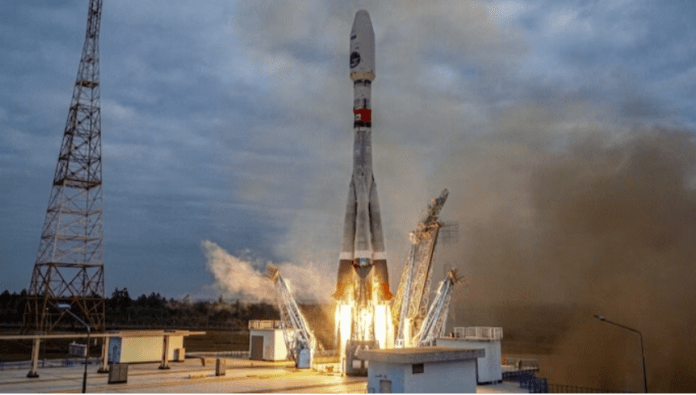Russia’s Luna-25 spacecraft encountered trouble while trying to enter a pre-landing orbit, potentially delaying its mission.
According to Hindustan Times, in what appears to be a setback to Russia’s moon mission, the Luna-25 spacecraft ran into unspecified trouble while trying to enter a pre-landing orbit on Saturday.
The Luna-25, the first Russian lunar Lander in nearly 50 years, was due to enter the pre-landing orbit around the same time as the Chandrayaan-3 Lander module but the maneuver was unsuccessful.
Launched on August 10, almost a month after the Chandrayaan-3 lift-off, the Luna-25 spacecraft was racing to land on the moon’s south pole ahead of the Indian spacecraft on August 21. Russia, however, reported an “abnormal situation” on its moon-bound spacecraft while trying to enter its scheduled pre-landing lunar orbit.
What exactly happened to Luna-25?
Russia’s space agency Roscosmos, in a Telegram post, said, “During the operation, an abnormal situation occurred on board the automatic station, which did not allow the maneuver to be performed with the specified parameters.”
While Roscosmos said the team is analyzing the situation, the agency reported that the preliminary data obtained from the moon mission contained information about the chemical elements of the lunar soil and that its equipment had registered a “micrometeorite impact”, according to Associated Press.
While the Luna-25 was expected to attempt a soft landing on the lunar surface on August 21, it’s not immediately clear if the plan still stands. Roscosmos did not specify whether the incident will prevent Luna-25 from making a landing.
Only three countries have managed successful moon landings: the erstwhile Soviet Union, the United States and China. India and Russia are now aiming to be the first to land at the moon’s South Pole, a highly coveted target among space-faring nations.
India’s Chandrayaan-2, launched in 2019, was partially successful as the Lander’s attempted soft landing faced challenges and communication loss during descent, leading to the rover’s inability to fully operate. The orbiter, however, has been operational and continues to send valuable data back to Earth.

















